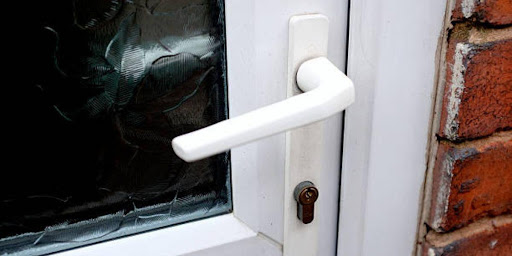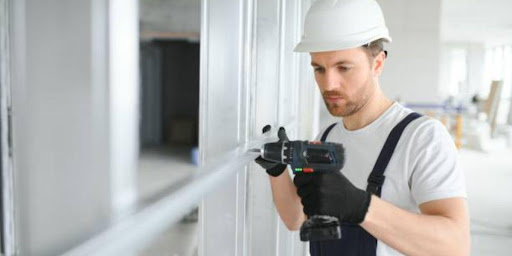Power Articles
Industry Elevating Content
Benefits of Soundproof Windows and Doors for Noise Reduction

PowerArticles
July 30, 2023
In an increasingly noisy and bustling world, the demand for tranquility within our living and working spaces has become more vital than ever. This is where the remarkable advantages of soundproof windows and doors emerge, promising a haven of serenity and peace. By seamlessly obstructing external noise, these specialized installations not only shield us from the disturbances of traffic clamor, construction sounds, and urban commotion but also enhance our overall well-being by creating a harmonious environment that fosters focus, relaxation, and undisturbed rest. This article will explore the myriad benefits of soundproof windows and doors, shedding light on how these innovative solutions serve as indispensable allies in curbing noise pollution and elevating the quality of our daily lives.
The Science Behind Noise Reduction
Sound transmission occurs when sound waves travel through the air and come into contact with different surfaces, such as windows and doors. When external noise, like traffic or loud neighbors, impacts these surfaces, they start to vibrate. These vibrations then create sound waves inside the building, causing the noise to be heard indoors. The extent of sound transmission depends on factors such as the frequency of the sound and the material of the barriers it encounters.
How soundproof windows and doors block, absorb, and dampen noise
Soundproof windows and doors are engineered to minimize the transmission of sound waves from the outside to the inside of a building. They achieve this through a combination of blocking, absorbing, and dampening techniques. Multiple layers of glass with different thicknesses help block sound waves, preventing them from passing through the windows. Additionally, the space between the layers is filled with insulating gas to enhance the sound-blocking effect.
Sound-absorbing materials, like acoustic foam or laminated glass, can further reduce noise. These materials convert sound energy into heat energy, effectively diminishing the intensity of the sound wave. Moreover, soundproof windows and doors often incorporate seals and gaskets to dampen vibrations and prevent sound leaks around the edges.
Overview of sound transmission class (STC) and its significance
Sound Transmission Class (STC) is a rating system that quantifies how well a material or construction assembly can reduce sound transmission. The STC rating typically ranges from 20 to 80, with higher values indicating better soundproofing performance. When choosing soundproof windows and doors, it’s essential to consider their STC rating, as it provides a reliable measure of their effectiveness in reducing noise.

Advantages of Soundproof Windows and Doors
Soundproof windows and doors offer a range of advantages, making them an attractive investment for homeowners and businesses alike. These advantages primarily focus on reducing external noise, enhancing indoor acoustics, and providing energy efficiency and insulation benefits.
A. Significant reduction in external noise
Traffic noise
Soundproof windows and doors effectively block out the noise generated by busy streets and highways, creating a peaceful and quieter indoor environment. This reduction in traffic noise can significantly improve overall well-being and sleep quality, particularly for those living in urban areas.
Construction and industrial noise
For properties located near construction sites or industrial zones, the constant noise can be disruptive and stressful. Soundproof windows and doors act as a barrier, minimizing the impact of such external noise and creating a more tranquil living or working space.
Aircraft and train noise
For buildings near airports or train tracks, the sounds of aircraft and trains passing by can be overwhelming. Soundproof windows and doors help to mitigate these noises, ensuring a more serene atmosphere and reducing disturbances caused by frequent passing vehicles.
B. Enhancing indoor acoustics
Reduction of internal noise transmission
Soundproof windows and doors not only block external noise but also prevent internal sounds from escaping. This is particularly beneficial in homes with loud appliances, music studios, or busy office environments, where maintaining a quiet and focused atmosphere is essential.
Improved privacy and confidentiality
Soundproof windows and doors create a sense of privacy by preventing conversations and noises from being heard outside. This is especially advantageous for office spaces, meeting rooms, or residences in close proximity to neighbors, providing a secure environment for confidential discussions.
C. Energy efficiency and insulation benefits
Maintaining consistent indoor temperatures
Soundproof windows and doors are often designed with insulating materials, contributing to a more stable indoor temperature. They help to minimize heat exchange between the inside and outside, reducing the need for constant heating or cooling and creating a comfortable living or working environment.
Lowering energy consumption and costs
As a result of their insulation properties, soundproof windows and doors can lead to reduced energy consumption. Homeowners and businesses can enjoy lower utility bills while also reducing their carbon footprint, contributing positively to environmental sustainability.

Health and Well-being Benefits
Impact of noise pollution on health:
Sleep disturbances and insomnia
Noise pollution, particularly from traffic, construction, and other outdoor activities, can significantly disrupt sleep patterns. Prolonged exposure to loud noises during sleep hours can lead to difficulty falling asleep, frequent awakenings, and overall reduced sleep quality. Chronic sleep disturbances can result in daytime drowsiness, fatigue, and impaired cognitive function.
Increased stress and anxiety
Constant exposure to loud noises triggers the body’s stress response, leading to heightened levels of stress hormones like cortisol. This can cause feelings of anxiety, restlessness, and irritability. Individuals living in noisy environments may experience chronic stress, which can negatively impact their overall well-being and increase the risk of stress-related health issues.
How soundproof windows and doors promote better health
Quality sleep and restful environment
Soundproof windows and doors are designed to minimize external noise transmission, creating a quieter indoor environment. By reducing noise disturbances, they provide individuals with a conducive setting for quality sleep and rest. Improved sleep patterns not only enhance physical health but also contribute to better mood, concentration, and productivity during waking hours.
Stress reduction and improved mental well-being
Soundproofing technology helps to create a peaceful living space by blocking unwanted noise from the outside. This leads to a decrease in stress levels as individuals can relax and unwind without constant auditory disruptions. Enjoying a quieter and calmer environment can positively impact mental well-being, leading to reduced stress and anxiety levels.

Considerations Before Installation
Before investing in soundproof windows and doors for noise reduction, several essential considerations should be taken into account to ensure a successful and satisfactory outcome.
Evaluation of Noise Reduction Requirements:
The first step in the process is to evaluate the specific noise reduction requirements of the space in question. Identify the sources of noise and their intensity levels. For instance, urban areas may face traffic noise, while suburban homes might deal with neighborly disturbances. Understanding the noise frequencies and decibel levels will help in selecting the most appropriate soundproofing solutions.
Choosing the Right Type of Soundproof Windows and Doors:
There is a variety of soundproof windows and doors available, each with unique properties and features. Double or triple-pane windows with insulating gas between the layers can effectively block noise. Additionally, acoustic laminated glass and thick, solid-core doors are excellent options. Consider factors like STC (Sound Transmission Class) ratings and the materials’ ability to dampen sound vibrations.
Budget Considerations and Cost-Effectiveness:
While soundproof windows and doors offer substantial benefits, it’s crucial to establish a budget and explore cost-effective options. Assess the overall value that the soundproofing solution provides in terms of improved comfort, reduced stress, and enhanced property value. Remember that investing in higher-quality products may yield more significant long-term benefits.
Professional Installation vs. DIY Options:
Decide whether to hire professionals for the installation or pursue a do-it-yourself approach. While DIY options may save money, professional installers have the expertise to ensure proper fitting and maximize noise reduction. Improper installation can compromise the effectiveness of even the best soundproof windows and doors.

Conclusion
In conclusion, the advantages of soundproof windows and doors for noise reduction are unequivocal, offering a transformative solution to mitigate the pervasive impact of noise pollution on our daily lives. By seamlessly integrating cutting-edge sound insulation technology into our homes and workplaces, these specialized installations create serene environments that foster enhanced concentration, restful sleep, and overall well-being. Not only do soundproof windows and doors shield us from external disturbances, but they also uphold privacy and amplify acoustic comfort, redefining the way we experience and interact with our living spaces.
Published By
PowerArticles
July 30, 2023